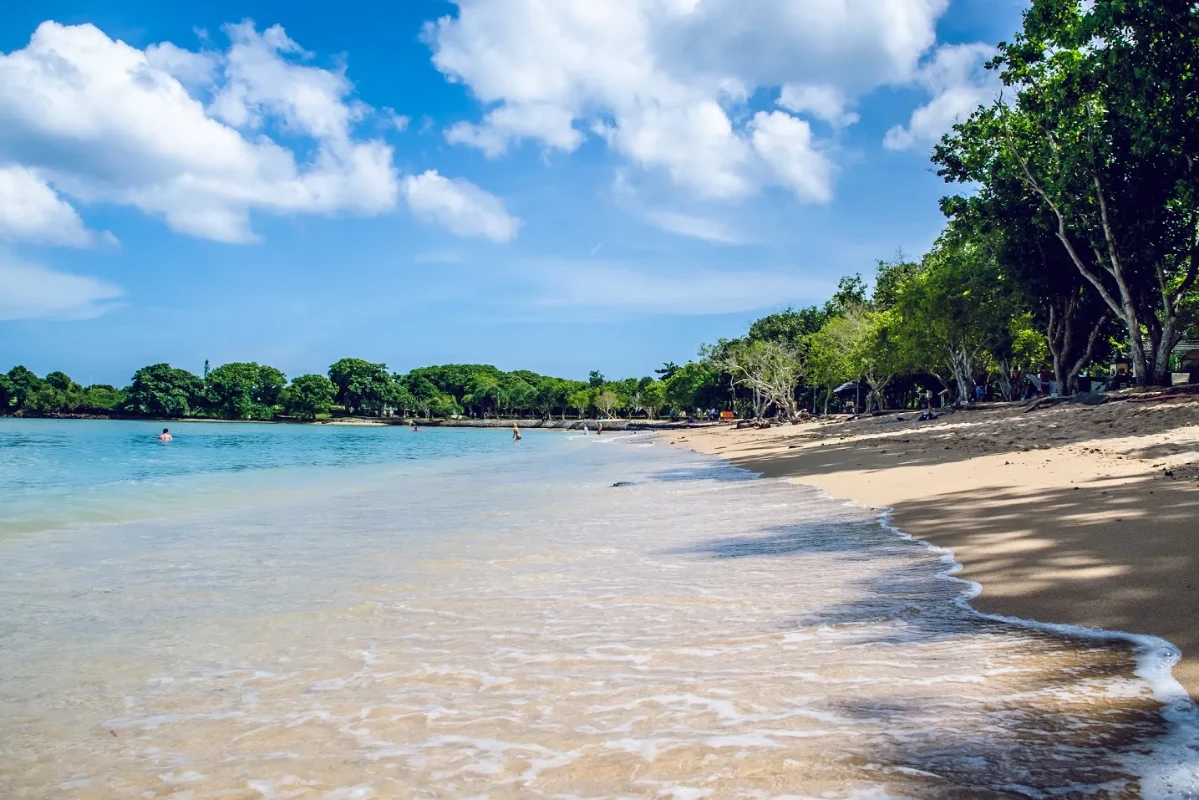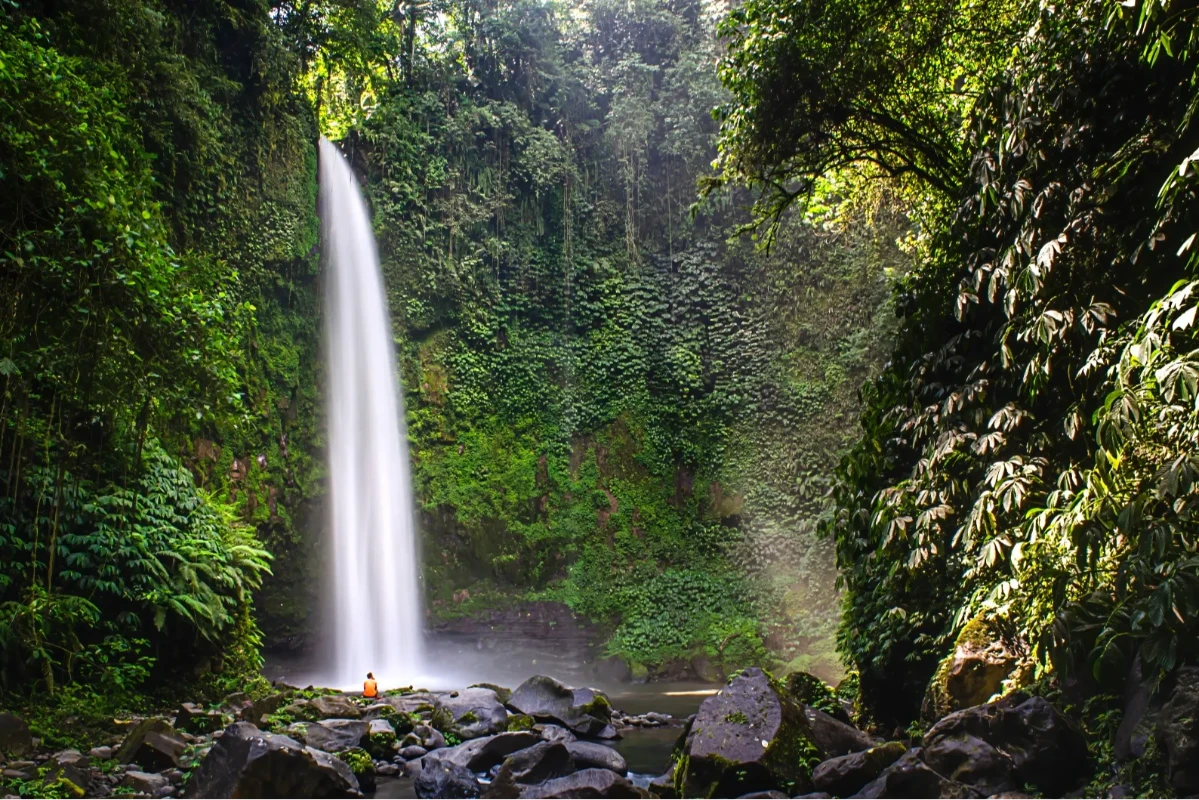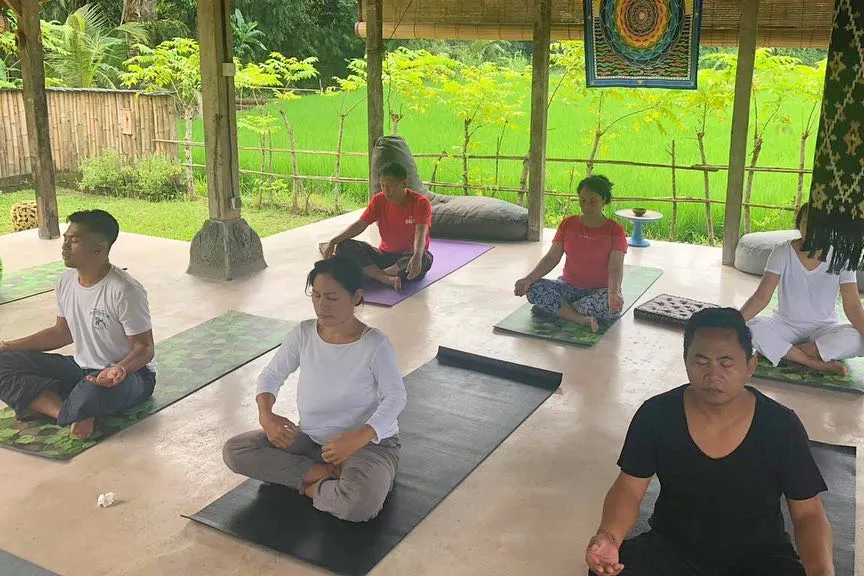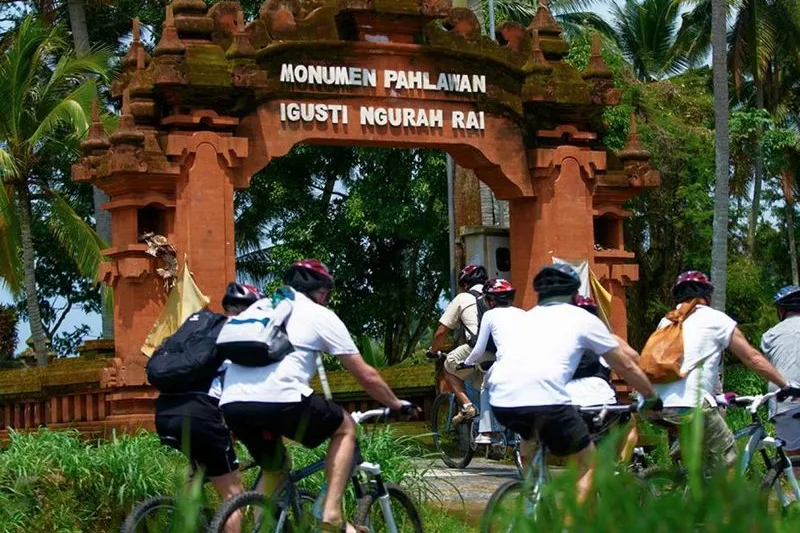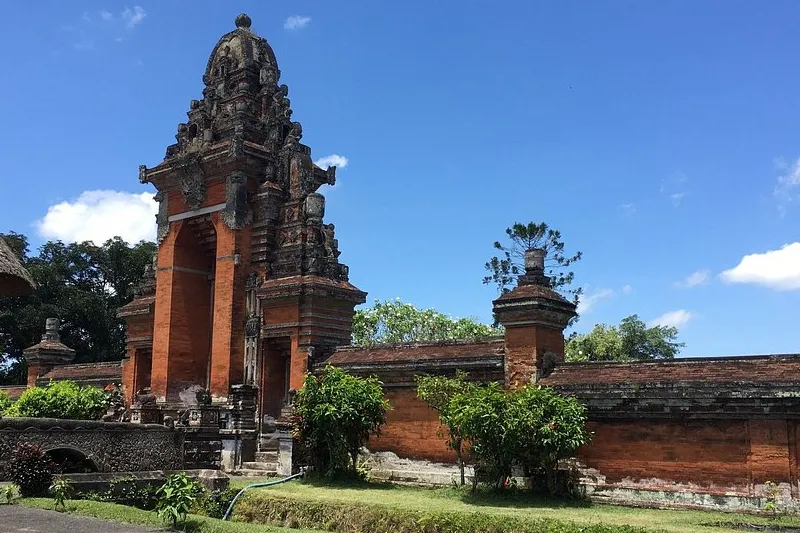
Mengwi Tourism Village: Harmony of Nature, Culture, and Spirituality
56
🛕 1. Taman Ayun Temple (Parahyangan)
A symbol of the connection between humans and the Divine, Taman Ayun Temple is a heritage site from the Mengwi Kingdom, built in the 17th century. Surrounded by a moat and lush gardens, the temple offers not only a place of worship but also a serene spiritual and cultural destination.
- Highlights: Traditional Balinese architecture, spacious manicured gardens, and a peaceful atmosphere.
- Activities: Strolling through the temple complex, enjoying the landscape, and learning about the history of the Mengwi Kingdom.
🏺 2. Manusa Yadnya Museum (Pawongan)
This museum represents the human-to-human relationship through five stages of ceremonial rites in Hindu life — from birth to death. Manusa Yadnya honors the human journey and the noble values rooted in Balinese society.
- Highlights: Exhibits of ceremonial replicas such as otonan, metatah (tooth filing), weddings, and ngaben (cremation).
- Activities: Learning about Balinese culture, interactive museum tours, and preserving local wisdom.
👹 3. The Ogoh-Ogoh Bali (Palemahan)
This educational attraction showcases a collection of Ogoh-ogoh in various forms, sizes, and themes that symbolize the relationship between humans and the natural world. Traditionally burned during the Nyepi celebration, Ogoh-ogoh represent negative elements being cleansed to restore environmental balance.
- Highlights: Year-round Ogoh-ogoh exhibitions with artistic design and ecological messages.
- Activities: Art workshops, Nyepi cultural documentation, and iconic photo spots.
✨ Harmony in Tourism and Cultural Preservation
By visiting these three key attractions in Mengwi Village, travelers not only enjoy beauty and knowledge but also experience firsthand the Tri Hita Karana philosophy. Mengwi invites you to embrace the values of peaceful, balanced, and sustainable Balinese life.
Related Articles
isi subtitle
